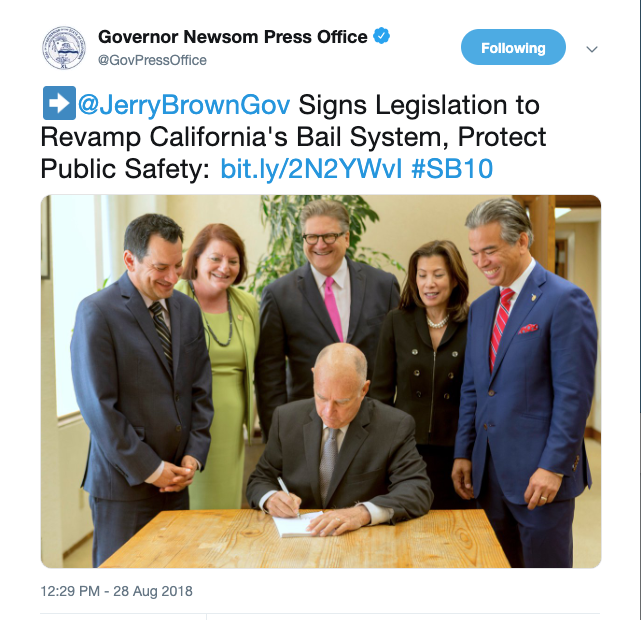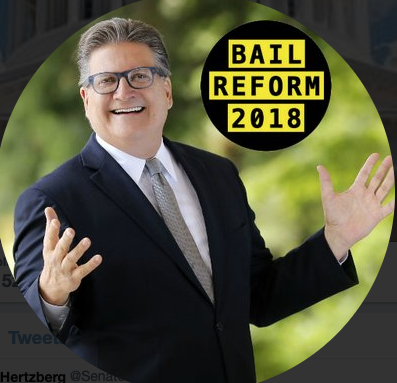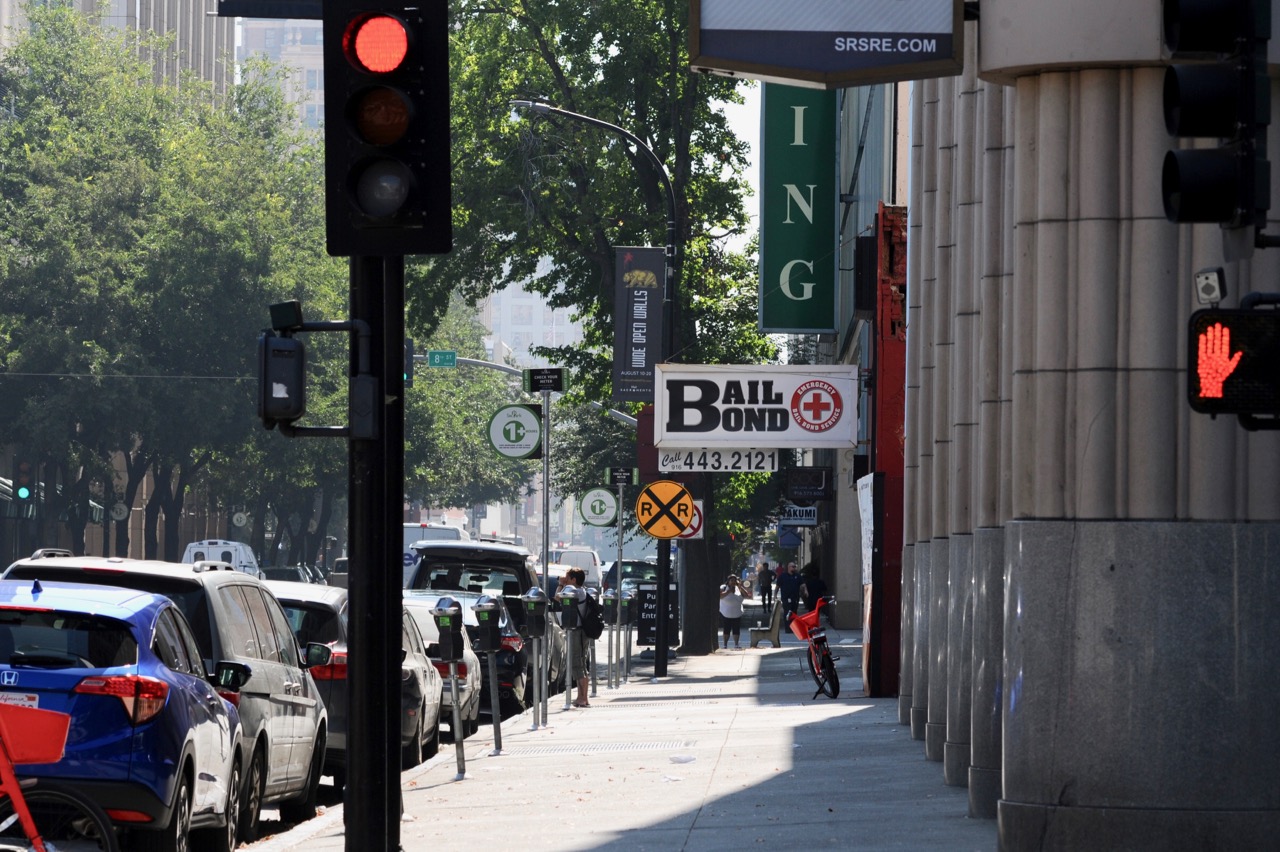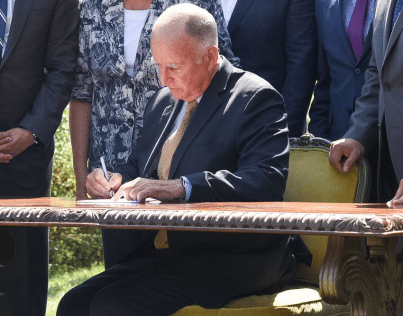
U.S. Supreme Court Affirms Constitutionality of Bail, But CA Still In Legal Bail Limbo
Opponents say ‘cash bail’ system creates a system of ‘wealth-based discrimination’
By Katy Grimes, April 3, 2019 3:15 pm
For four years activist Plaintiffs lawyers have been suing smaller cities arguing that the existing bail system is unconstitutional because it violates the principle of equal protection under the law.

In San Francisco, such a lawsuit claims, ““Wealthy arrestees purchase their freedom by paying an arbitrary amount set by the bail schedule. Poor arrestees must languish behind bars until the resolution of their case, simply because they cannot afford to pay a pre-determined sum of money.”
Yet Article 1, Section 12 of the California Constitution expressly addresses bail under its Declaration of Rights.
U.S. District Judge Yvonne Gonzalez Rogers wrote, “Given the consequences which flow from an extended duration of pre-arraignment detention, the court finds the deprivation significant. Accordingly, plaintiffs have shown that the sheriff, through use of the bail schedule, has significantly deprived plaintiffs of their fundamental right to liberty by sole reason of their indigence,” Courthouse News reported. Judge Gonzalez Rogers said the bail schedule is arbitrary, and “merely provides a ‘Get Out of Jail’ card for anyone with sufficient means to afford it.”
While California appears mired in class warfare issues, the City of Calhoun, Georgia took their case all the way the U.S. Supreme Court in Maurice Walker v. Calhoun, Georgia. California Globe wanted to know if the Calhoun case would set any precedence on California’s pending bail case.
The U.S. Court of Appeals for the Eleventh Circuit ruled last year that the Calhoun’s revised bail order, using bail schedules with an expeditious review by judges, was constitutional. The Civil Rights Corps then filed a petition for certiorari (a writ or order by which a higher court reviews a decision of a lower court.) before the U.S. Supreme Court, asserting that the Eleventh Circuit erred by applying the rational basis standard to the review of claims of discrimination based upon wealth.
However, the Supreme Court upheld the decision of the Eleventh Circuit U.S. Court of Appeals when it denied the certiorari Petition.
“This means that monetary bail and the use of monetary bail schedules meets constitutional muster,” said Jeff Clayton, American Bail Coalition Executive Director. “That is not to say that all uses of a schedule are constitutional—adequate due process review of the bails must occur within a matter of two to three days.”
“We knew from the beginning these cases were about due process more than excessive bail, and we were proven correct today,” Clayton said Wednesday in an interview.
California Globe asked Clayton if this 11th Circuit decision impacts the federal Judge Yvonne Gonzalez Rogers’s recent ruling that San Francisco’s bond schedule is unconstitutional. “The judge in the San Francisco bail case took a long time in her decision setting her case far apart from Calhoun’s,” Clayton said. He added that he anticipates the San Francisco case will go to the Ninth Circuit Court of Appeals, and it is “likely that the United States Supreme Court will hear this one.”
California’s Bail Cases
The California Legislature weighed in on this issue last year with Senate Bill 10, arguing that the current bail system was unfair to low income people. In place of bail schedules, SB 10 would have created “a pretrial services agency to immediately upon booking conduct a pretrial risk assessment on the arrested person and prepare a pretrial services report with recommendations for conditions of release, and provides that a person who is arrested and booked for a misdemeanor, who is not first cited and released with a signed promise to appear in court, shall be released by the pretrial services agency subject to signing a release agreement without further conditions.”

Former Gov. Jerry Brown signed Senate Bill 10 into law in August 2018, which would have completely abolished California’s cash bail system, and more than 3,000 bail bondsmen and women, by Oct. 1, 2018. However, Californians Against the Reckless Bail Scheme fought the legislation on two points: it would result in the release of violent offenders to the streets and would kill a $2-billion national industry, as well as the 3,200 bail agents in California. The group collected more than 575,000 signatures in 70 days to put SB 10 on the November 2020 ballot, to allow California voters to decide.
The real purpose of SB 10, by Sen. Bob Hertzberg (D-Los Angeles) and Assemblyman Rob Bonta (D-Oakland), appears to be less about the constitutionality of bail and more a part of the movement to “reform” California’s criminal justice system and let more “low-level” criminals back out on the streets. Hertzberg suggested the risk assessment-based bail reform would help decrease the number of innocent people in jail.
SB 10 would eliminate bail, which bail bondsmen and attorneys say is a vital tool that ensures people arrested for crimes will return to court for their trials. SB 10 will “increase crime and cost the public untold hundreds of millions of dollars,” Jeff Adachi, San Francisco Public Defender said in support of the ballot initiative, before he recently and suddenly passed away.
Senate Bill 10 bill analysis stated that “the purpose of the bill is to reduce the amount of people held in pretrial detention because of the inability to afford money bail and to require each county to establish a pretrial services agency that meets certain specifications.
SB 10 “provides for immediate release of most misdemeanants and those assessed as low risk to public safety and for failure to return to court, and supports informed judicial determination of release for those assessed as moderate or high risk, with limitations on the use of preventive detention,” the Judicial Council of California wrote in a letter of support. “It is an appropriate and effective alternative to the current pretrial release and detention system that results in pretrial outcomes that are often unsafe and unfair.”
Clayton added, “Then-U.S. Attorney General Eric Holder first filed a statement of interest in Varden v. City of Clanton in 2015, arguing against the use of bail schedules. Since that time, we have been waiting for a signal from the U.S. Supreme Court as to whether the use of money bail schedules is constitutional. Today, we can say without hesitation, we know their answer.”
The country knows the answer, but does California?
- New BLS Data Shows Union Membership Drives Falling Flat - February 19, 2026
- NY Federal Reserve Tariff Report an ‘Embarrassment’ - February 19, 2026
- Legislation Would Conceal California High-Speed Rail Records from Public - February 18, 2026





One thought on “U.S. Supreme Court Affirms Constitutionality of Bail, But CA Still In Legal Bail Limbo”